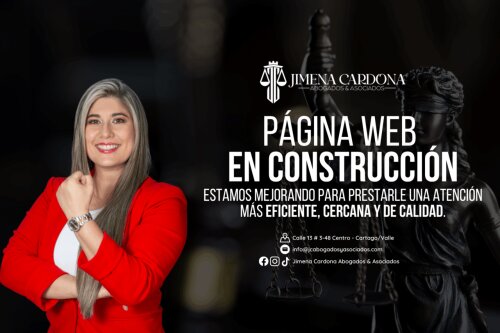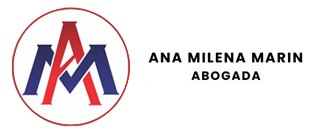Best Bail Bond Service Lawyers in Cartago
Share your needs with us, get contacted by law firms.
Free. Takes 2 min.
List of the best lawyers in Cartago, Colombia
1. About Bail Bond Service Law in Cartago, Colombia
The bail bond service field in Cartago operates within the broader Colombian criminal procedure framework. In practice, a bail bond (fianza or caución) provides a guarantee that a defendant will appear for court hearings and comply with conditions set by the judge. Local Cartago residents often use private bail bond agencies to arrange these guarantees, but the contracts and terms must align with national law and judicial oversight.
In Cartago, as in the rest of Colombia, bail decisions are issued by a judge in the context of provisional release or other measures while investigations proceed. Attorneys or legal counsel guide families through the requirements, potential collateral, and the obligations that come with a bail arrangement. Understanding the underlying legal framework helps ensure that your rights are protected and the process is handled correctly.
2. Why You May Need a Lawyer
In Cartago, a qualified attorney or solicitor can be essential at several key moments in a bail process. The following real-world scenarios illustrate concrete situations where legal help is valuable.
- A relative has been detained and faces provisional release terms that require a fianza. An attorney can explain options, evaluate the sufficiency of the proposed guarantee, and negotiate fair conditions with the court or the bail agency.
- The bail bond agency requests collateral such as real estate or other assets. A lawyer can review the contract, verify legality, and suggest alternatives to minimize risk for the family.
- The court imposes conditions that are ambiguous or difficult to meet, such as reporting requirements or travel restrictions. A legal counsel can seek clarification, request modifications, or file a motion to adjust the conditions.
- The provisional release is subject to a time limit or potential extension. An attorney can monitor deadlines, file necessary motions, and coordinate with the prosecutor to avoid unnecessary detentions.
- The client may need to challenge or appeal a bail decision. A solicitor can prepare the record, gather supporting evidence, and represent the client in court.
- There is a risk of illegal or excessive fees from a bail agency. A lawyer can audit the fee structure, identify unlawful charges, and pursue remedies through appropriate channels.
In addition to negotiating terms, a Cartago-based lawyer helps ensure that communications with authorities are accurate and timely. This reduces delays and protects the client's legal rights during what can be a stressful period for families.
3. Local Laws Overview
Cartago residents are subject to the nationwide framework governing bail procedures. The main legal backbone is the Código de Procedimiento Penal, which sets out how provisional release and fianza work in practice. While local courts may have variations in scheduling, the underlying standards come from national law and judicial jurisprudence.
Key legal concepts to understand include the nature of a fianza or caución as a guarantee, the responsibilities of the guarantor, and the permissible scope of collateral. The court must ensure that any bail measure is proportionate to the case and consistent with due process protections.
La fianza en Colombia se regula principalmente por el Código de Procedimiento Penal y sus reformas, que establecen las condiciones de la caución, la responsabilidad del garante y los plazos aplicables.
Fuente: Rama Judicial de Colombia
Las garantías procesales deben respetar el debido proceso y la presunción de inocencia, con decisiones judgeadas de forma motivada y razonable.
Fuente: Fiscalía General de la Nación
Las normas de procedimiento penal en Colombia pueden ser consultadas para entender los límites y procedimientos de la caución y la libertad provisional.
Fuente: Corte Constitucional
Recent changes en la práctica judicial para Caución y fianza pueden aparecer como reformas puntuales a la legislación de procedimientos penales o ajustes en Guidelines judiciales. Mantenerse actualizado con las publicaciones oficiales ayuda a evitar sorpresas durante el proceso.
4. Frequently Asked Questions
What is a bail bond in Colombia?
A bail bond is a formal guarantee that a defendant will attend court hearings and comply with court orders. It is often provided by a bail bond agency or a trusted guarantor under a contract.
How do I start the bail bond process in Cartago?
Begin by contacting a local solicitor to assess eligibility, then gather documents such as identification and arrest records. The lawyer coordinates with the court and the bail agency to post the guarantee.
When can a provisional release be granted in Cartago?
Provisional release is considered when the court determines the risk to public safety and flight risk is manageable. The decision depends on the case specifics and the guarantee offered.
Where can I find a licensed bail bond solicitor near Cartago?
Look for attorneys who specialize in criminal procedure and bail matters in Valle del Cauca. Verify licenses with the local bar association and the national registry.
Why might I need a lawyer to review a fianza contract?
A lawyer can ensure the terms are lawful, identify hidden fees, and negotiate fair collateral requirements. This helps prevent unintended financial risk.
Can I use personal assets as collateral for bail?
In many cases, collateral is possible, but a lawyer can advise on what assets are acceptable and how to structure the agreement to limit risk.
Should I hire a Cartago-based attorney or a national firm?
A local solicitor familiar with Cartago courts can streamline communications and scheduling. A national firm may offer broader resources if needed.
Do I need to have a lawyer present at all bail hearings?
Having legal representation at hearings is highly advisable to ensure proper procedure and timely responses to the court's questions.
Is the bail process the same for all offenses?
No. The type of offense and case specifics influence bail options, conditions, and collateral. A lawyer can tailor strategies to the charge.
What documents are usually required to apply for bail?
Typically you will need identification, arrest or case numbers, summaries of the charges, and any documents related to assets offered as collateral.
How long does it take from filing to provisional release in Cartago?
Timelines vary by case complexity and court workload, but provisional release can occur within a few days to a week with proper guarantees.
What is the difference between fianza and caución?
In practice, both refer to a guarantee for court appearances, but fianza is commonly used in Colombia for a personal or real guarantor contract, while caución can refer to a broader guaranteed commitment.
5. Additional Resources
These official sources provide authoritative guidance on bail, due process, and judicial procedures in Colombia:
- Fiscalía General de la Nación - Bail and provisional release guidelines and procedural information. https://www.fiscalia.gov.co
- Rama Judicial de Colombia - Official court system with procedural rules and bail-related practices. https://www.ramajudicial.gov.co
- Procuraduría General de la Nación - Oversight and disciplinary information related to legal processes. https://www.procuraduria.gov.co
6. Next Steps
- Define the scope of help you need, such as posting bail, negotiating terms, or appealing a bail decision. Estimate a 1-2 day planning period after arrest news.
- Research and shortlist Cartago-based solicitors who specialize in bail and provisional release. Verify licenses with the local bar and national registries; aim for 2-4 candidates.
- Arrange initial consultations within 3-5 days of arrest to discuss options, fees, and timeline. Prepare a list of questions about the fianza, collateral, and obligations.
- Request written fee proposals and contracts from at least two firms. Compare total costs, not just the upfront fee, and note any potential additional charges.
- Review the proposed contract with your chosen solicitor and sign only after you understand every term. Ask for clarifications in writing if needed.
- Provide all required documents to your lawyer and the bail agency promptly to avoid delays. Create a shared calendar for court dates and deadlines.
- Attend all hearings with your attorney and maintain open communication with the legal team. Report changes in contact information or asset status immediately.
Lawzana helps you find the best lawyers and law firms in Cartago through a curated and pre-screened list of qualified legal professionals. Our platform offers rankings and detailed profiles of attorneys and law firms, allowing you to compare based on practice areas, including Bail Bond Service, experience, and client feedback.
Each profile includes a description of the firm's areas of practice, client reviews, team members and partners, year of establishment, spoken languages, office locations, contact information, social media presence, and any published articles or resources. Most firms on our platform speak English and are experienced in both local and international legal matters.
Get a quote from top-rated law firms in Cartago, Colombia — quickly, securely, and without unnecessary hassle.
Disclaimer:
The information provided on this page is for general informational purposes only and does not constitute legal advice. While we strive to ensure the accuracy and relevance of the content, legal information may change over time, and interpretations of the law can vary. You should always consult with a qualified legal professional for advice specific to your situation.
We disclaim all liability for actions taken or not taken based on the content of this page. If you believe any information is incorrect or outdated, please contact us, and we will review and update it where appropriate.









